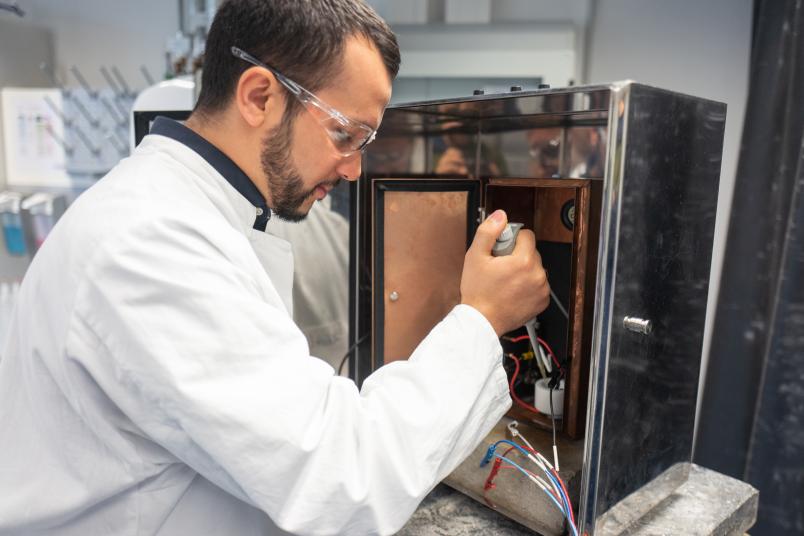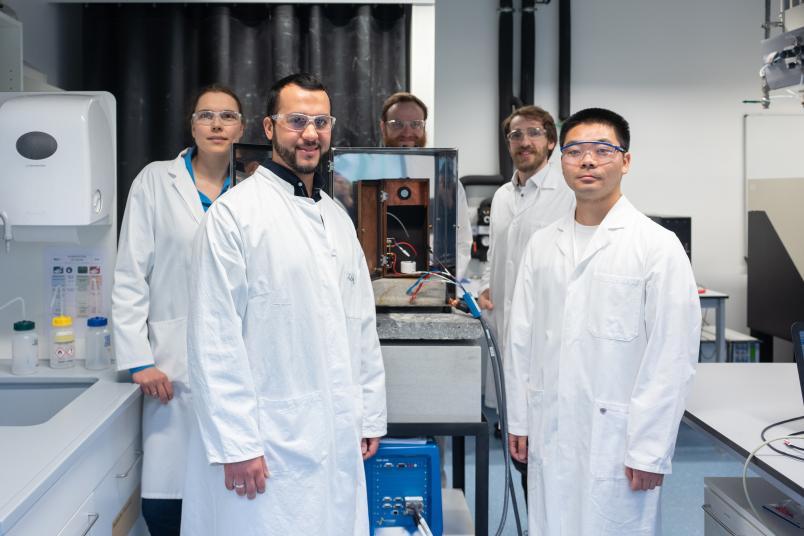
Catalysis
High reaction rates even without precious metals
Precious metals are often efficient catalysts. But they are expensive and rare. However, it has so far been difficult to determine how efficient non-precious metal alternatives are.
Non-precious metal nanoparticles could one day replace expensive catalysts for hydrogen production. However, it is often difficult to determine what reaction rates they can achieve, especially when it comes to oxide particles. This is because the particles must be attached to the electrode using a binder and conductive additives, which distort the results. With the aid of electrochemical analyses of individual particles, researchers have now succeeded in determining the activity and substance conversion of nanocatalysts made from cobalt iron oxide – without any binders. The team led by Professor Kristina Tschulik from RUB reports together with colleagues from the University of Duisburg-Essen and from Dresden in the Journal of the American Chemical Society, published online on 30 May 2019.

It is essential to find out more about the activities of nanocatalysts.
Kristina Tschulik
“The development of non-precious metal catalysts plays a decisive role in realising the energy transition as only they are cheap and available in sufficient quantities to produce the required amounts of renewable fuels,” says Kristina Tschulik, a member of the Cluster of Excellence Ruhr Explores Solvation (Resolv). “It is essential to find out more about the activities of nanocatalysts in order to be able to efficiently further develop non-precious metal catalysts.”
